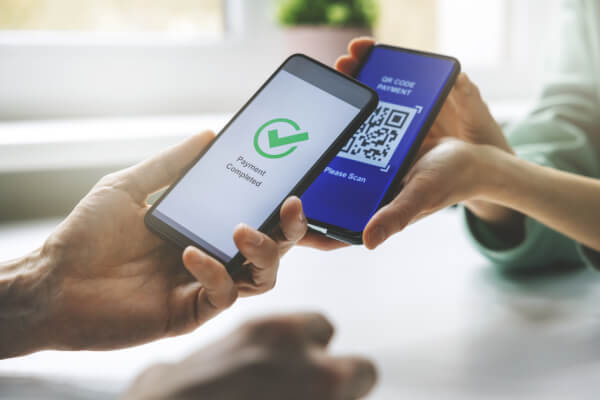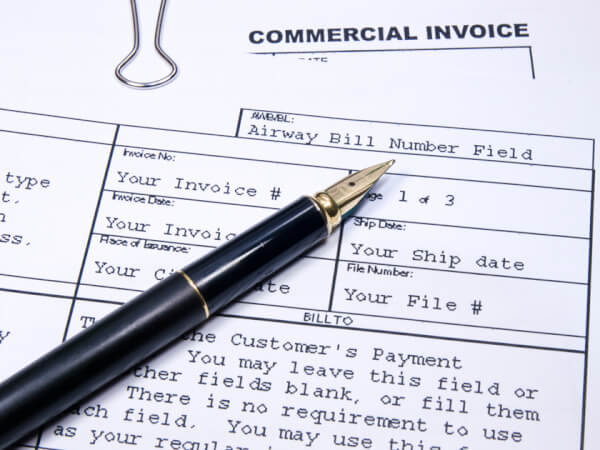Top 5 Online Payment Methods for Businesses in Singapore
Discover the top online payment methods in Singapore. Learn how they work and which are best for your business.

For most Singapore residents, using PayNow is an everyday occurrence—whether paying for hawker food, making retail purchases, or hailing a ride on Grab. This is made possible by PayNow Corporate, which allows businesses to offer this fast, convenient payment option.
This article explores the goals and history of PayNow, why it's important for Singapore businesses, and how they can register to use it. We'll also examine the fees involved and introduce Wise Business as a low-cost option for Singapore businesses that need to send and receive international payments.
| Table of contents |
|---|
PayNow Corporate takes PayNow beyond just individual consumers, making it available for businesses, government agencies, and other organisations in Singapore.
Launched in 2018, PayNow Corporate aims to enable organisations to send and receive SGD payments instantly, while simplifying transactions by reducing reliance on cash and cheques and eliminating the need to share bank account details.
Instead, businesses link their Unique Entity Number (UEN) to their Singapore bank account and generate QR codes, providing a more convenient option for both B2B and B2C transactions.
| 💡 Remember, if you're managing international payments across currencies, you could be incurring unnecessary forex markup fees that eat into your profits. With Wise Business, you get the mid-market exchange rate and access to a host of business tools and integrations at no extra cost. Unlike many other providers, Wise Business charges just a low one-time fee – with no monthly or annual fees after that. Register online and use the features you need, whenever you need them. |
|---|
Learn more about Wise Business
To transfer money using PayNow Corporate, a business will use its PayNow-linked corporate bank account (or NFI) through its banking app, online banking, or integrated payment systems like APIs or ERP software.
The business then enters the recipient’s identifier—such as a mobile number, NRIC, UEN, VPA, or PayNow QR code—to complete the transfer.
Businesses can send money to individuals by entering their linked mobile number or National Registration Identity Card (NRIC). As long as the recipient has linked it to their PayNow account, the money will go straight to them. If it isn’t linked, the transaction will fail, and the bank will notify you in real-time that the transfer can’t be completed.
However, these methods are only for sending funds to individuals, such as refunding a customer or paying an employee’s salary. Businesses cannot receive payments using a mobile number or NRIC.
Instead, businesses can send and receive money from other businesses using their linked UEN. This is the business equivalent of an NRIC. Similarly, the recipient business must have its UEN linked to PayNow Corporate, otherwise, the transaction will fail.
If the UEN is linked, the money is transferred directly to the recipient's corporate bank account without needing to enter any bank details.
Another way businesses can send and receive payments is through PayNow QR codes. This is often the easiest and most convenient method since you don’t have to manually enter any details—just scan the QR code and complete the transaction.
These QR codes work for both individuals and businesses. You’ll often see them printed on invoices, displayed at payment counters, or embedded in websites and digital documents.
There are two types of PayNow QR codes:
A VPA is a unique identifier that can be linked to an NFI, such as a Wise Business account or a GrabPay Wallet. It allows individuals and businesses to connect their PayNow account to an NFI e-wallet while maintaining their existing PayNow registration linked to a bank account.
This means you can send and receive funds either through your VPA, which directs payments to and from your NFI, or through your UEN, which directs payments to and from your bank account.
Here is the format PayNow VPAs follow:
Applying for PayNow Corporate is usually a simple process that doesn’t take much time. The process can vary slightly from one bank to another, but here’s a general rundown of the steps involved:
Singapore Quick Response Code (SGQR) is a unified QR code system that lets businesses accept payments from multiple e-payment methods, including PayNow Corporate.
Customers can scan a single QR code and select to pay via PayNow or other supported payment options, such as NETS, GrabPay, and Alipay, eliminating the need for multiple QR codes.
Here are the steps to register your PayNow Corporate for SGQR:
Once your business is registered with PayNow Corporate, you can start using it to send and receive funds.
Here's how to send funds:
Here's how to receive funds:
| ➡️ Learn how you can receive money with PayNow by using your Wise Business Account ⬅️ |
|---|
Most banks in Singapore offer PayNow Corporate services, with 21 banks and 5 NFIs participating. Signing up is usually free, but the transaction fees can vary slightly depending on the bank.
Here’s what some of Singapore's leading banks charge for incoming and outgoing PayNow Corporate transfers:
| Bank | PayNow Incoming Transfer Fee | PayNow Outgoing Transfer Fee |
|---|---|---|
| DBS | Free until Dec 31, 2025 (Fee waived) | FAST: S$0.50 per transaction GIRO: S$0.20 per transaction³ |
| OCBC | Usually S$0.20 per transaction Free until Dec 31, 2025 (Fee waived) | FAST: S$0.50 per transaction GIRO: S$0.20 per transaction⁴ |
| UOB | Usually S$0.20 per transaction Free until Dec 31, 2025 (Fee waived) | FAST: S$0.50 per transaction GIRO: S$0.40 per transaction⁵ |
| Maybank | Free until Dec 31, 2025 (Fee waived) | FAST: S$0.50 per transaction GIRO: S$0.20 per transaction⁶ |
| CIMB Bank | Free until Dec 31, 2025 (Fee waived) | Free until Dec 31, 2025 (Fee waived)⁷ |
| Citibank | Information not available | Information not available |
| Standard Chartered | Currently free (Fee waived)⁸ | Information not available |
| HSBC | Information not available | Information not available |
| Bank of China | No fee currently | No fee currently⁹ |
| ➡️ Check out our review of the best corporate bank accounts in Singapore ⬅️ |
|---|
PayNow Corporate is a fast, convenient, and secure way for SMEs, startups, and enterprises in Singapore to send and receive SGD payments.
Since the majority of Singapore's population uses PayNow—many on a daily basis—it's important for businesses to have this payment method available. Consumers expect it, and it provides an accessible fallback, especially when credit cards or cash aren’t an option.
| 💡 While you're setting up PayNow Corporate for quick, low-cost local SGD transfers, why not sign up for Wise Business as well? That way, you can cover all your financial bases by making sure your international transactions are fast and cost-effective too. It only takes a few minutes to get started. |
|---|
With Wise Business, you can:
Get Started with Wise Business
Sources checked on 28th February 2025
*Please see terms of use and product availability for your region or visit Wise fees and pricing for the most up to date pricing and fee information.
This publication is provided for general information purposes and does not constitute legal, tax or other professional advice from Wise Payments Limited or its subsidiaries and its affiliates, and it is not intended as a substitute for obtaining advice from a financial advisor or any other professional.
We make no representations, warranties or guarantees, whether expressed or implied, that the content in the publication is accurate, complete or up to date.

Discover the top online payment methods in Singapore. Learn how they work and which are best for your business.

Discover how Singapore businesses can use link payment to handle transactions with customers, and how easy it is to set up payment links with Wise Business.

Tired of slow payments? Learn how to set up a PayNow QR code, get paid instantly in SGD, and keep your cash flow happy — no chasing, no fuss.

Proforma invoice and commercial invoice may be very similar, but only one lets you get paid. Learn about the differences and what matters for your business.

Explore the best invoicing software for small businesses in Singapore—compare tools, pricing, and features to help you scale and get paid faster.

Discover if Tazapay is right for your Singapore business with our in-depth review of its features, pricing, and benefits.